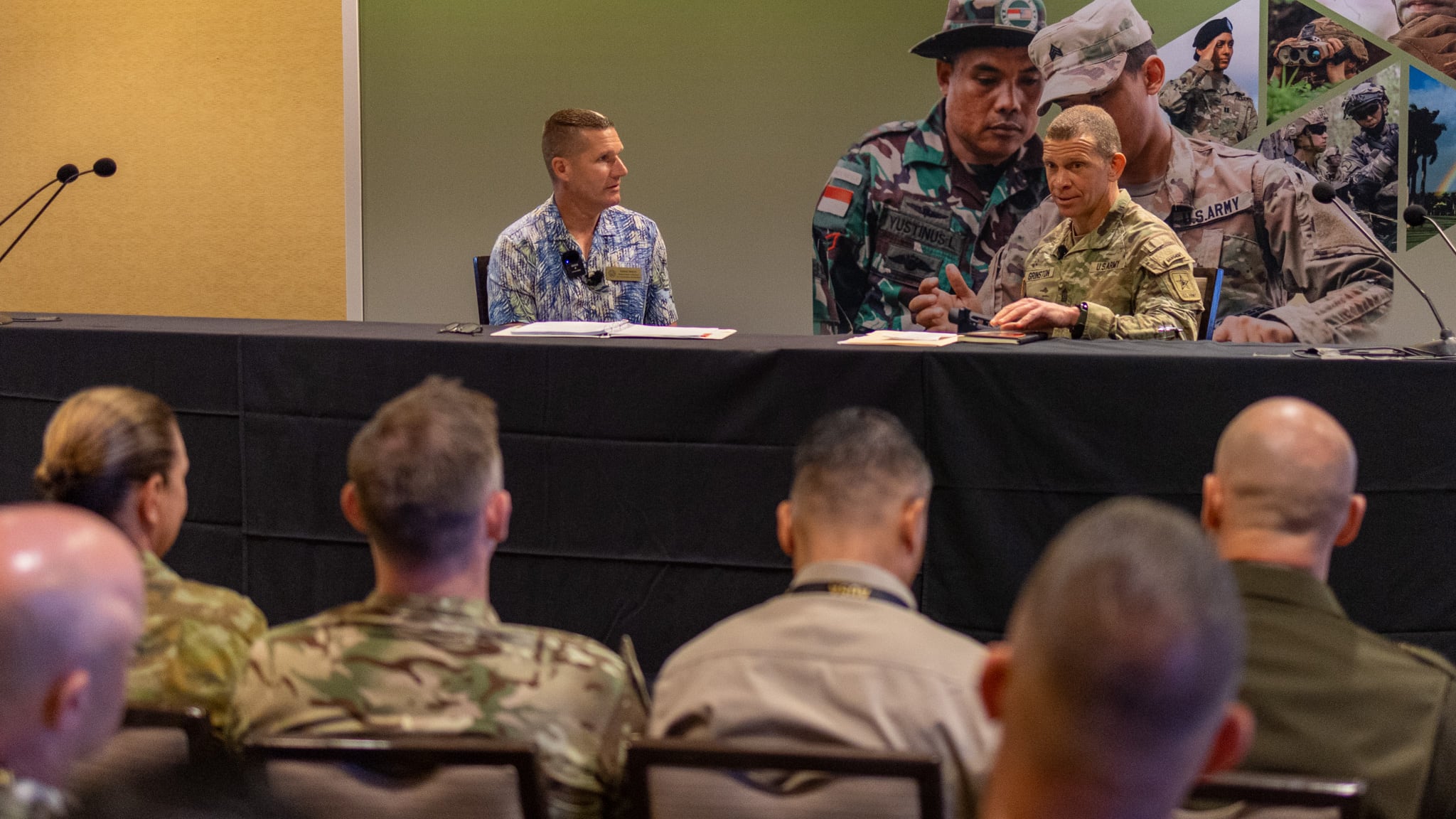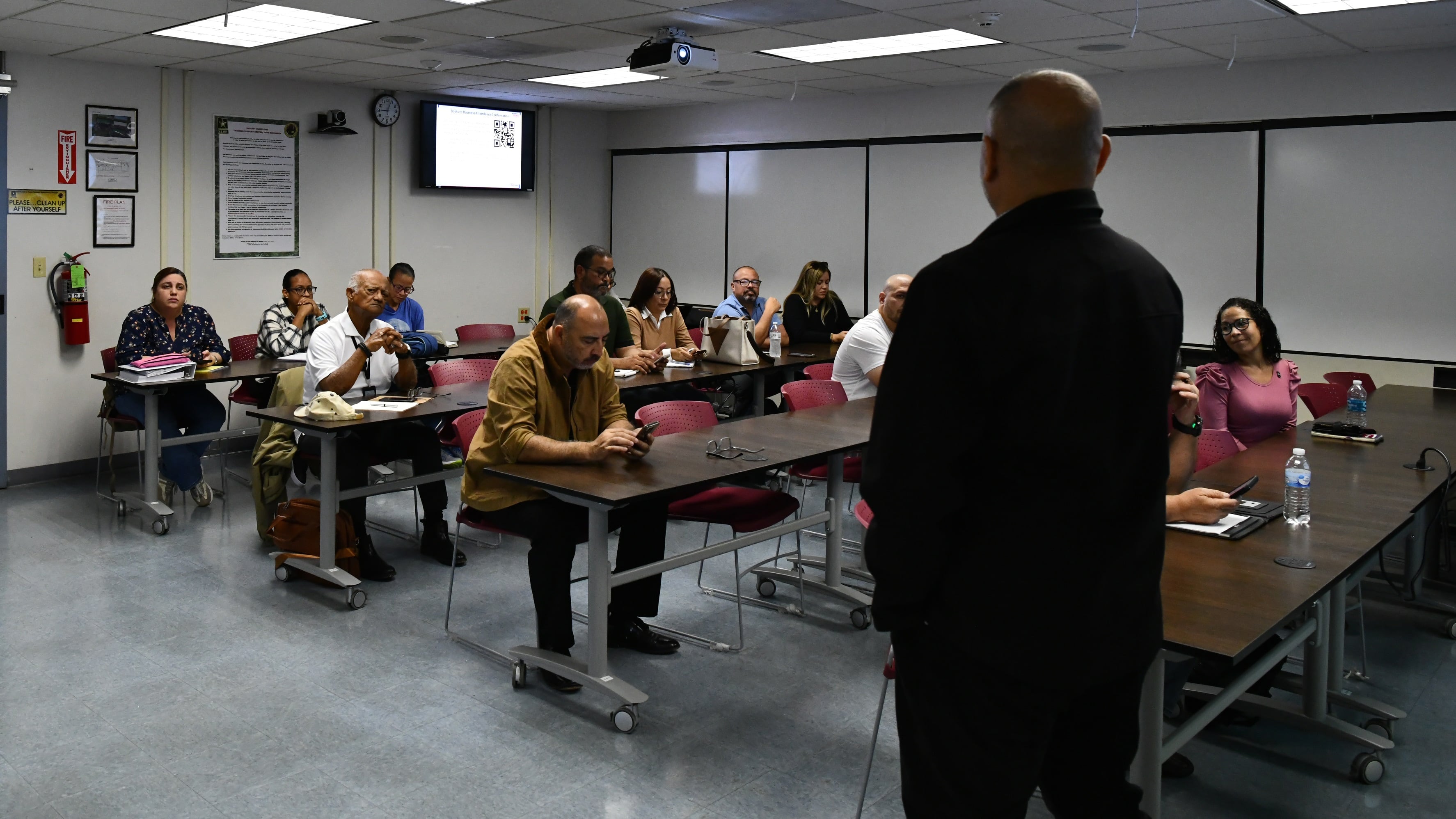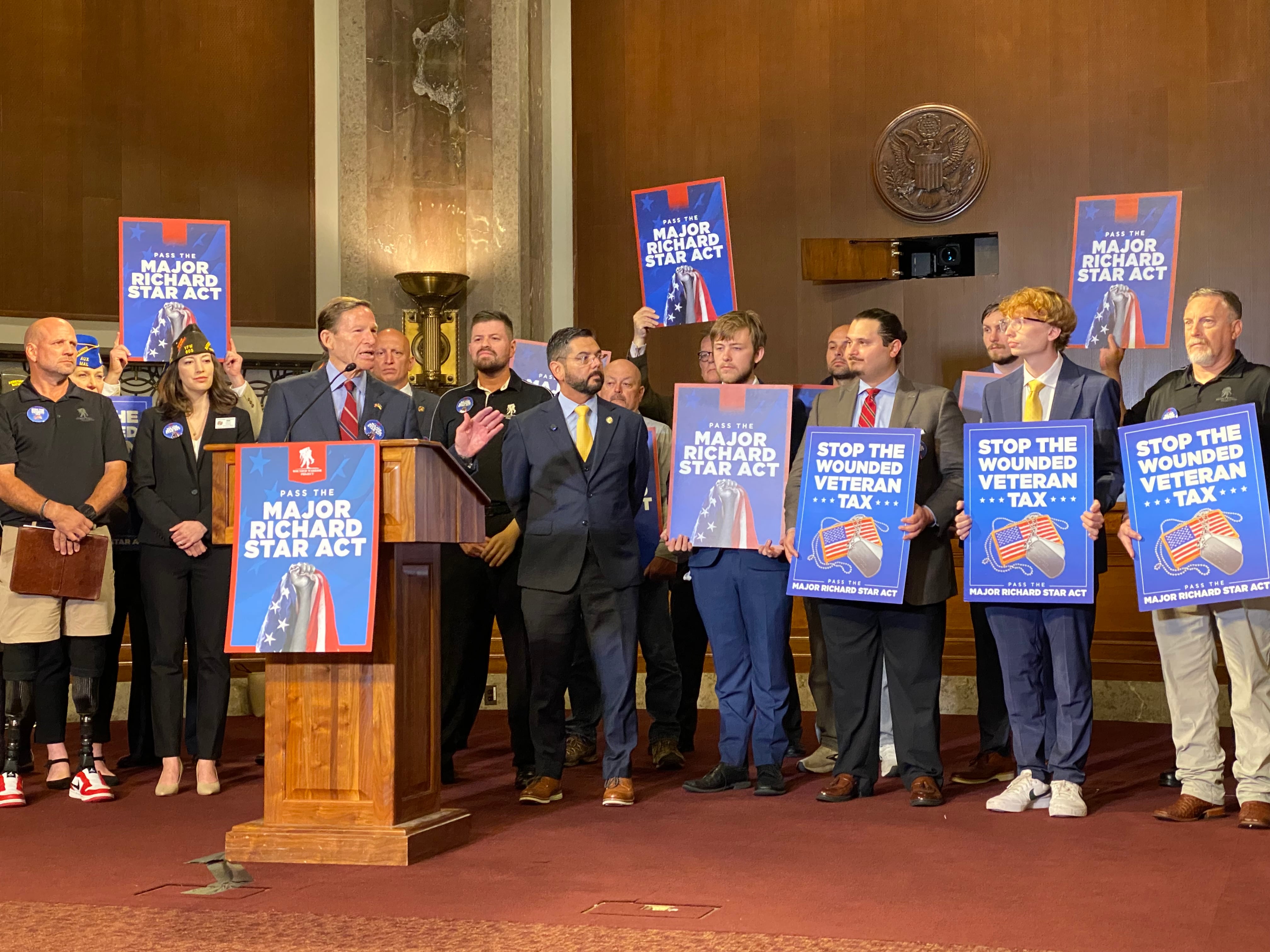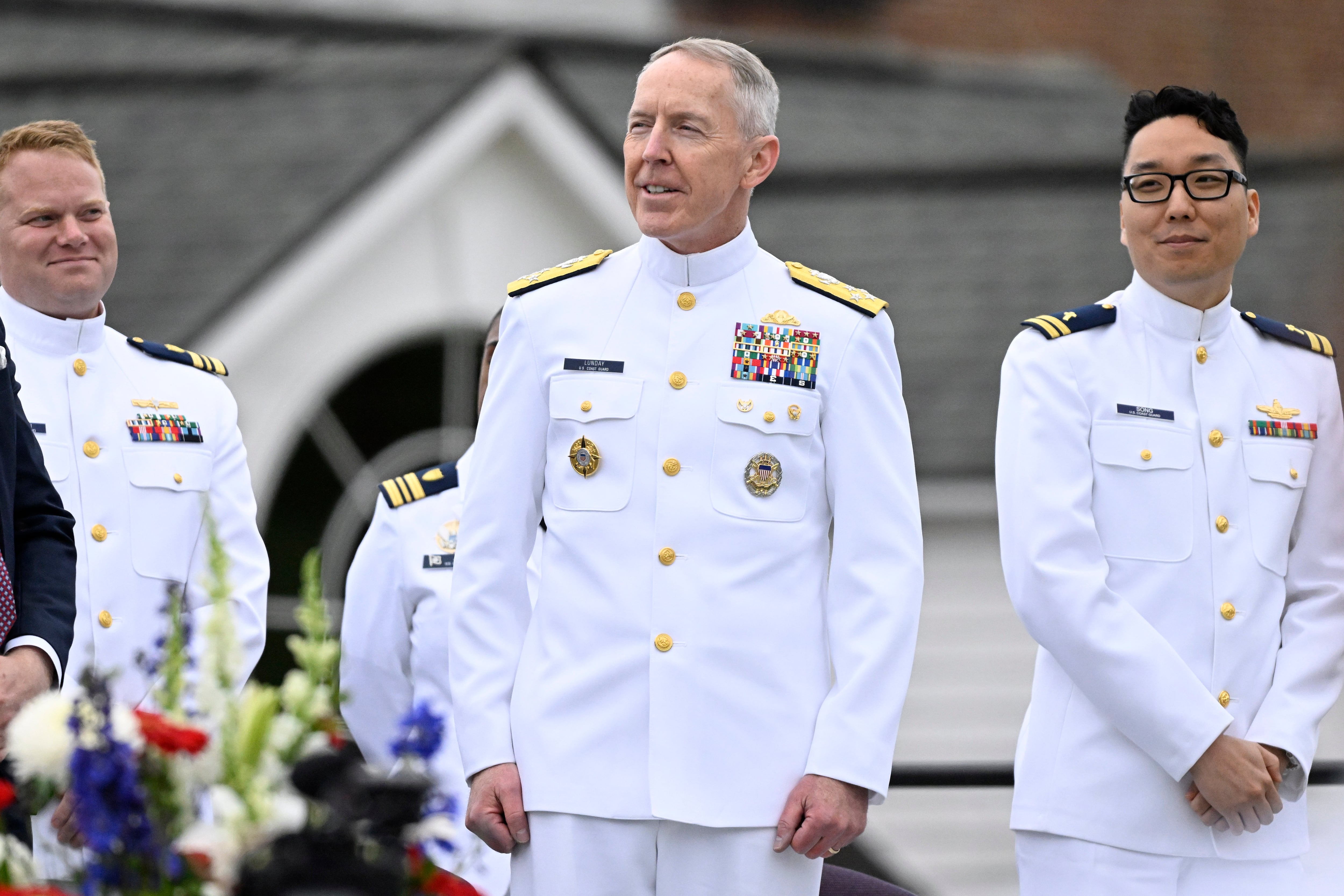There’s a classic scene, familiar to soldiers many generations, where a senior enlisted leader trails behind the commanding officer, figuratively attached at the hip.
That’s a good soldier, right?
Maybe not anymore.
“You’re probably not enabling mission command if you’re sitting right next to your boss,” said Sergeant Major of the Army Michael A. Grinston on May 16 at the annual Association of the U.S. Army’s Land Forces Pacific Symposium in Honolulu, Hawaii.
Grinston’s “fireside chat” with his immediate predecessor, retired Sergeant Major of the Army Daniel Dailey, took place prior to a panel on the role of the noncommissioned officer in the U.S. Indo-Pacific Command.
Mission command is running military operations through “decentralized execution” based on mission orders, according to the Joint Chiefs of Staff definition.
With Army units, even company-level and below, stretched across the widest of distances in this pivotal region, the service’s top leaders have pushed in recent years to put decision-making in the hands of lower ranks.
It’s a move that’s vital for the Army and other military branches to fight a new kind of fight — more dispersed, quicker cycles of reconnaissance, strikes, and counterstrikes. For conventional forces, gone are the days of unchecked air superiority and long-running planning for kill-or-capture missions.
And a big push across all geographic combatant commands requires trusting NCOs both in the U.S. Army and its partners and allies — another message trumpeted and repeated countless times in recent years.
That’s where a senior NCO can play a crucial role, Grinston said.
“Sometimes you gotta be where your boss isn’t,” Grinston said. “What are those things that you can see that he or she can’t see?
That said, the outgoing top enlisted soldier, warned the audience full of chevrons that it doesn’t get easier the further up the ladder one climbs.
“And the higher you go, the harder this gets,” he said.
Part of that function, Grinston noted, is gauging the real motivation of partner or allied forces. Much of that can be measured at the NCO level, he said.
“Do we think they have the will to fight? Because that’s come up a lot in Russia and Ukraine,” Grinston said.
Sergeants and above need to fact check or perhaps gut check what’s happening at lower levels versus what top partner or allied force officers are saying, he said.
Without it, the task is nearly impossible.
Grinston did not mention Afghanistan or Iraq specifically other than to note he worked deployments to Iraq while also balancing duties as a command sergeant major in I Corps, out of Joint Base-Lewis McChord, Washington. But his next comment echoed the experiences of many who served in those two countries over the past decades.
“If the officers in that country don’t trust NCOs, in my experience, you’re just going to be banging your head against a wall,” Grinston said.

And two days later, during another panel challenging myths and misconceptions of land warfare, a two-star Army general’s comments further bolstered the sergeant major’s comments.
Maj. Gen. Joseph Ryan, commanding general of the 25th Infantry Division, based out of Hawaii, put the lessons he learned from Afghanistan bluntly.
“We’ve got to be honest brokers with ourselves in terms of evaluation of reliable partners,” Ryan said. “I think anybody who fought in Iraq and Afghanistan who says they didn’t question the efficacy of the Afghan Army, what we were trying to build there and what we were trying to do, not without intense, incredible, herculean effort, the fact that the partner was overestimated as a reliable partner does not escape me.”
Those questions now linger as the U.S. military works to build reliable partners to counter China in the Pacific.
In the conversation, Dailey synthesized Grinston’s comments into two words: operationalizing trust.
Grinston shared wisdom he’s gained over his nearly four decades in the Army, noting that the larger the group of soldiers, the harder it is to build and maintain trust and, it takes time.
The sergeant major pointed to his own experience, both with U.S. soldiers and with allies.
While previously at the brigade level, he remembered calling down to one of his enlisted soldiers and requesting a staff sergeant for tasking.
“I don’t have any staff sergeants,” the unidentified soldier replied.
“I knew that wasn’t true,” Grinston said.
But rather than shouting out to find someone, Grinston understood that he was new to this brigade and this senior NCO didn’t know him well enough to trust him to use that staff sergeant for something more important than what they were needed for at the battalion level.
“He didn’t trust me to make the right decision,” Grinston said. “And it was up to me at the brigade to fix that.”
In another anecdote specific to partnerships, Grinston referred to the relationship he’s built over years with Sergeant Major of the New Zealand Army Wiremu Moffitt.
“If ‘Mu’ called me from New Zealand and said, ‘I need you to do this,’ if I had to buy my own plane ticket, I would do it,” Grinston said.
But Grinston wasn’t the only senior enlisted leader at the symposium with an opinion on how to work with commanders and allies or partners.
During the following panel on the role of NCOs in the Pacific theater, U.S. Navy Fleet Master Chief David Isom, the senior enlisted leader for INDOPACOM, added another facet to Grinston’s remarks.
Isom agreed, with respect to achieving “buy-in” from partner forces’ enlisted ranks, but said that sometimes being with the boss matters.
“Sometimes efforts are top-down and driven down from the top,” Isom said. “You can talk to NCOs in other countries, and they’re just not empowered at the highest level.”
But often, Isom said, those senior NCOs want to see a change in their forces. They want to have a structure more like the United States military.
Other topics and questions arose during the short chat between sergeants major, but Grinston emphasized a specific point on trust to his audience.
“We have great authority because our officers trust us,” Grinston said. “Never lose that trust. It is fleeting and could go in a second. We are only great because our officers say, ‘You have all this authority and go do that.’”
Todd South has written about crime, courts, government and the military for multiple publications since 2004 and was named a 2014 Pulitzer finalist for a co-written project on witness intimidation. Todd is a Marine veteran of the Iraq War.





